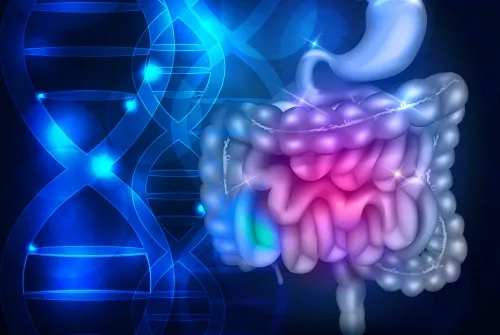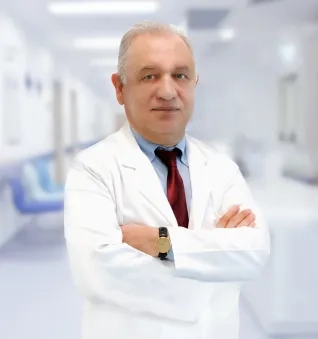Alo Yeditepe
Alo Yeditepe
Serious Risk Factor for Colon Cancer: Heredity
Prof. Dr. Neşet Köksal, who stated that the risk of catching this disease in a person with a first-degree relative having colon cancer is doubled compared to the normal population, said that heredity is a serious risk in colon cancer.
Yeditepe University Koşuyolu Hospital General Surgery Specialist Prof. Dr. Neşet Köksal drew attention to the role of heredity in colon cancers, which have reached serious numbers, and explained that some people are born with a diseased gene inherited from their parents, so they face the risk of developing colon cancer at some point in their life.
Hereditary Colon Cancers Require Close Follow-up
Prof. Dr. Köksal, who defined this group in which hereditary genetic transitions are shown as 'hereditary colon cancers', said that the early detection of this patient group and the treatment before cancer develops or the close follow-up program affects the survival of the patients very seriously. Prof. Dr. Neşet Köksal made the following statement: “While the risk of developing this disease is 5 percent in a person whose family does not have colon cancer, the risk of developing this disease increases to 12 percent if at least one of his/her first-degree relatives, namely mother, father or siblings, has colorectal cancer. In those whose more than 2 close relatives experience colorectal cancer, the rate rises to 35 percent and the risk increases 3 times. Relatives of patients with hereditary colon cancer who carry the diseased gene will definitely develop colon cancer at some point in their life. In other words, having the disease in the family poses a serious risk.”
''Cancer Development from Polyps Becomes Faster''
Reminding that more than 90 percent of colon cancers are caused by adenomatous polyps developing in the intestinal mucosa, Prof. Dr. Neşet Köksal said, “The formation of adenoma from normal colonic mucosa and the development of cancer from an adenoma takes an average of 10 years. However, in hereditary colon cancers, this process becomes shorter because people are born with diseased genes.”
Genetic Guidance Should Be Received
Prof. Dr. Neşet Köksal said, “Firstly, the first patient diagnosed with the disease is evaluated genetically and it is checked whether there is a mutation or a differentiation in the APC gene. If positive, family screening is done. Those who do not carry the APC gene mutation do not need further surveillance. Carrier individuals are examined for the disease, if there is no polyposis, they are included in the follow-up program. If it is a child, endoscopic follow-ups start from the age of 10 and continue at regular intervals according to the findings.”
Those Who Have Cancer in Their Family Should Be Careful
Stating that today colon cancers are considered to develop as a result of genetic disorders, Prof. Dr. Neşet Köksal said, “In the majority of colon cancers, there is no inherited genetic disorder and family history. However, genetic differences were detected in some of the patients in this group, which are considered to occur later. Studies in the fields of molecular biology and genetics identify many new gene mutations associated with diseases and previously unknown. For these reasons, apart from hereditary colon cancers, other individuals in all families with colon cancer should be careful and should not avoid the necessary examinations.”
Press Coverage: mynet | posta.com | haberler.com | dha.com
About
Faculty and Year of Graduation:
Ege University Faculty of Medicine, 1980
”
See Also
- Does Secondhand Smoke Increase the Risk of Breast Cancer?
- What is Gallbladder Surgery?
- Colorectal Cancers and Treatment Methods
- Patched Solution for Umbilical Hernia
- What are the Symptoms and Treatment Methods of Cirrhosis?
- Breast Cancer Diagnosis and Treatment Methods
- 3 Major Developments Shaping Treatment in Colon Cancer
- Can Weight Loss Despite Not Dieting Be a Sign of Cancer?
- He Came to Turkey to Get Rid of the Colostomy Bag
- Does Breast Cancer Risk Decrease During Pregnancy and Breastfeeding?
- Breast Cancer Incidence Age Is Decreasing Day by Day
- Age of Breast Cancer Prevalence Falls, yet Mortality Declines
- Liver Cancer (Tumor) and Treatment
- Gallbladder Stones
- What Is Appendicitis?
- Questions About Gastroenterology Surgery
- What are the Types of Obesity Surgeries?
- Questions About Obesity Surgery
Alo Yeditepe





